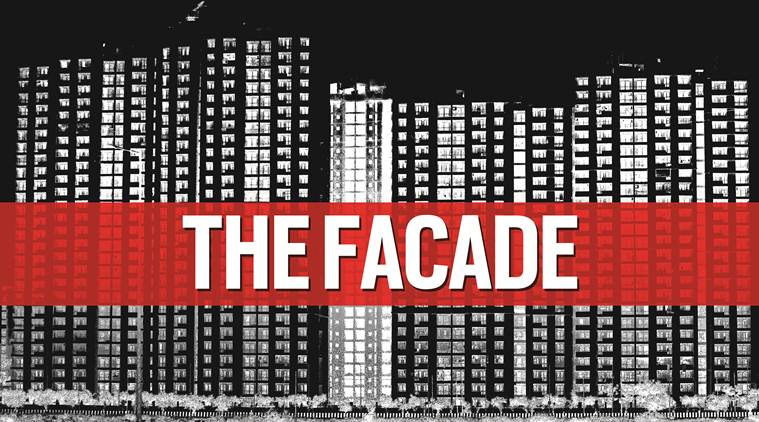
Written by Amil Bhatnagar and Ananya Tiwari
On July 23, the Supreme Court cancelled Amrapali Group’s registration under the Real Estate Regulatory Authority (RERA) and appointed the National Buildings Construction Corporation (NBCC) to complete construction of 42,000 flats that buyers had been promised six years ago. The judgment concluded a nine-year legal battle waged by homebuyers — though when they get possession remains to be seen.
The landmark decision highlighted that the company had allegedly siphoned money paid by homebuyers as advance — while some of it was diverted to set up new housing projects, part of it was used to pay for “personal” expenses by some Amrapali officials, such as buying villas.
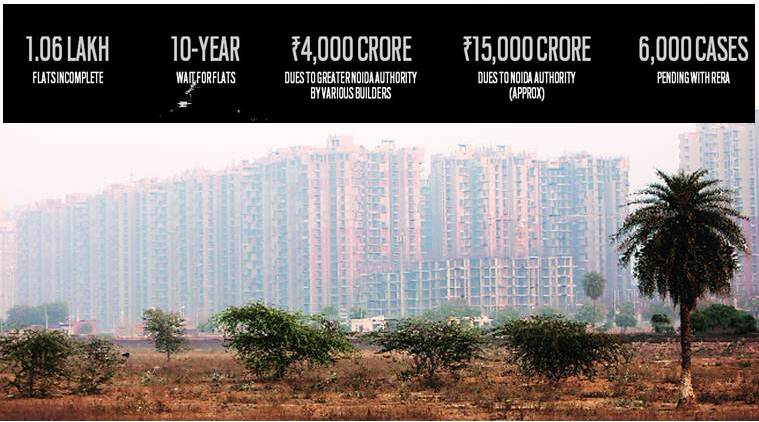
Testimonies by authorities, real estate experts, public courts and homebuyers The Indian Express spoke to suggest Amrapali’s case is only the tip of the iceberg.
Of the hundreds of small and big builders that were instrumental in the real estate boom in Noida and Greater Noida in the new millennium, several firms are now embattled, leaving thousands of homebuyers in the lurch as at least 1.06 lakh flats that should have been delivered by now lie incomplete — in some cases only as blueprints.
Jaypee Infratech Limited, the real estate division of Jaiprakash Associates Limited which changed the infrastructural landscape of Greater Noida during the Mayawati regime in 2007, is currently awaiting the Supreme Court’s response on its plea against a National Company Law Appellate Tribunal decision. Jaypee had proposed an ambitious ‘Wish Town’ in Noida with projects that were due between 2011-2012. Till date, almost 22,500 buyers are yet to get the keys to a new home.
Unitech Group, a Forbes Global 2000 company, has left almost 16,000 homebuyers out in the cold. The Centre has again suggested that NBCC be appointed to complete pending projects. Unitech MD Sanjay Chandra, meanwhile, continues to be lodged in Tihar Jail.
Besides these real estate giants, several other companies are facing trouble, with more than 21,000 flats awaiting completion, RERA figures suggest. According to officials, these include Omaxe, Supertech, Lotus Projects promoted by 3C Group, Unnati Fortune Holding Ltd and Logix Group, which have projects across Noida and Greater Noida.
According to sources in the Greater Noida Industrial Development Authority (GNIDA), 2.6 lakh flats were to be constructed in 200 sanctioned projects, of which almost 1.30 lakh were not given completion certificates for different reasons in Greater Noida alone.
In UP RERA, around 16,000 cases by homebuyers were registered in RERA courts out of which 10,000 had been resolved until August. A majority of these are confined to the western UP regions of Noida, Greater Noida and Ghaziabad. Four courts have been set up under the UP RERA to deal with homebuyer woes. A defaulter list uploaded by GNIDA, meanwhile, has listed 155 projects by more than 50 builders that had to submit dues ranging from Rs 4 crore to Rs 4,000 crore.
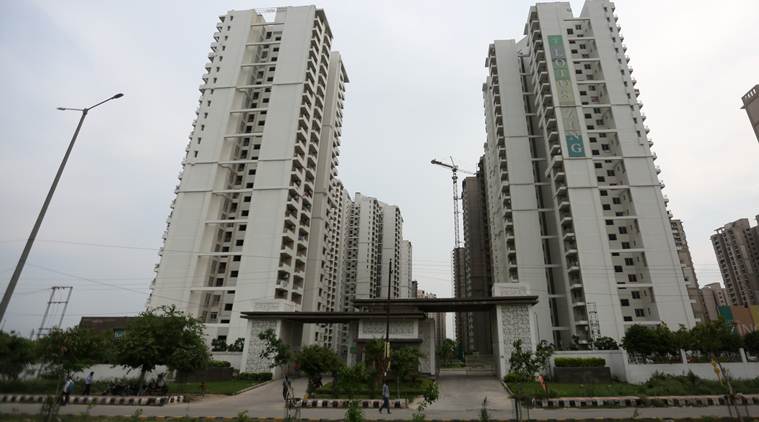
The spiral
“Companies such as Amrapali, Jaypee had access to a lot of money and that is where, ironically, the problem began. Properties were highly leveraged because of private equity money. Also, there was large amount of land purchase without any track record of most builders being able to actually deliver. When markets liberated, several builders, due to their political access, kept on leveraging projects as a result of which a crisis broke out. By 2014, market forces started showing signs of problems,” said Pankaj Kapoor, MD, Liases Foras, a real estate data analytics company.
According to Greater Noida authority officials, not all builders are deemed willful defaulters like Amrapali. “We must acknowledge that there was a slowdown in the real estate sector after 2008, which impacted construction and various other activities. Not all builders wilfully defaulted… But yes, some builders also went on the alleged cheating and fraud path,” said Narendra Bhushan, CEO GNIDA.
Yogesh Kumar Goyal, a CA and lawyer who handles cases for UP RERA, said, “This is like the 2008 real estate bubble in the US. In 1998, the government liberalised the housing loan policy, and banks started giving out lots of loans so all sectors connected to real estate would grow. Now that banks started to easily finance house loans, builders started to misuse it, diverting funds before completing projects. But the issue is also why banks continued to give out loans, without taking into account the status of construction.”
Several builders, however, maintain projects are on track. “All our projects are on time. We have delivered more than 22,000 units in the last three years. We are committed to delivering 10,000 units in the current financial year,” said Supertech chairman R K Arora. A consumer court had recently ordered Supertech to pay compensation to a couple whose flat was delayed.
A senior official from the Omaxe Group claimed: “Most of our houses in Noida and Greater Noida have been delivered. There may be some here and there that are pending. But unlike some big companies where buyers have booked flats and haven’t received them, we have no such problem.”
The interpretation of “ongoing projects” as mentioned in the RERA Act is another contentious point, with stakeholders suggesting builders often take advantage of the ambiguity. As per the Act, completion/occupancy certificates from RERA are required to declare a project complete. However, builders applied for such certificates even before projects were wrapped up. The option to apply for the certificate online was discontinued by UP RERA last year, after it was found that many companies would upload irrelevant documents, and in the absence of manual checking, some would even get approval.
A senior official in the regulatory organisation claimed Noida and Greater Noida authorities must also be held accountable for how certificates were issued. “The authorities could have, and should have, kept a check on the progress of the projects,” the official said, echoing the Supreme Court’s observations.
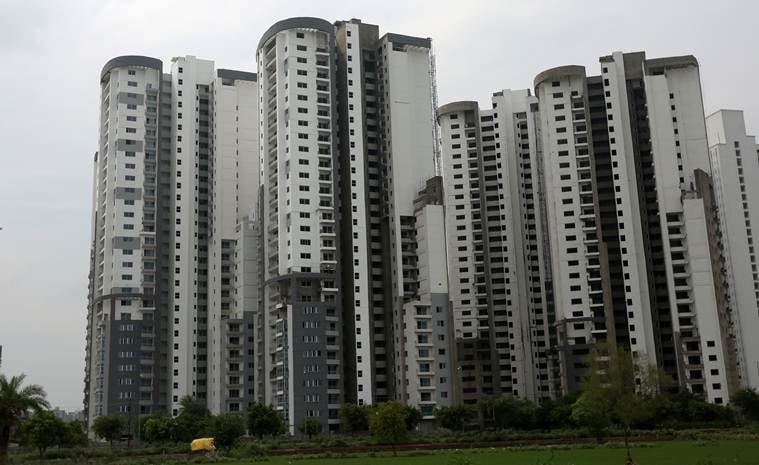
The wait
K K Kaushal, a petitioner in the Amrapali case, recalls feeling relieved when the SC judgment was announced. At the helm of the campaign against the builder for six years, Kaushal was active on Twitter; made a Telegram group of thousands of homebuyers; organised candlelight marches; and also made regular court appearances.
“It’s great that the SC has passed a buyer-friendly judgment and it will go a long way, but funds are still a question. The fact remains that NBCC will have to get thousands of crores to clean this mess. Plus they are also being considered to finish other projects. Will the cost come down to the government exchequer or to us?” said the 37-year-old, who works in a private firm and had invested over Rs 15 lakh for an Amrapali Dream Valley flat.
Pramod Kumar, an investor in a 2BHK at a Jaypee Noida property in Sector 133, said: “NBCC required 66% votes of lenders, in this case bankers and homebuyers, in their bid to take over Jaypee’s projects. They did not receive the required votes at the time. There is no denying that there might be trust issues when it comes to NBCC managing the task. Every asset (of defaulting firms) needs to be liquidated so the money is used to finish the flats.”
Dr Sarita Punia, who lives in Delhi and retired as the chief medical officer from Safdarjung Hospital, had invested in a 3C’s Lotus Panache flat in Noida’s Sector 110 in 2010. She was supposed to get possession six years ago. Asking why some homebuyers were being bailed out and others weren’t, she said: “We, too, need an organisation like NBCC or another government intervention.” Her frustration was shared by Prashant Agarwal and his wife Bhavana Agarwal, both chartered accountants in their 30s, who booked a flat at a Supertech project near Yamuna Expressway in 2011, paying almost the entire Rs 16 lakh for the studio apartment.
Punia said that several buyers of Lotus Projects have been offered ‘fit-outs’ in which the organisation claims the flats will be provided with basic necessities but without completion certificates. “We paid for a full flat and not a fit-out,” she said.
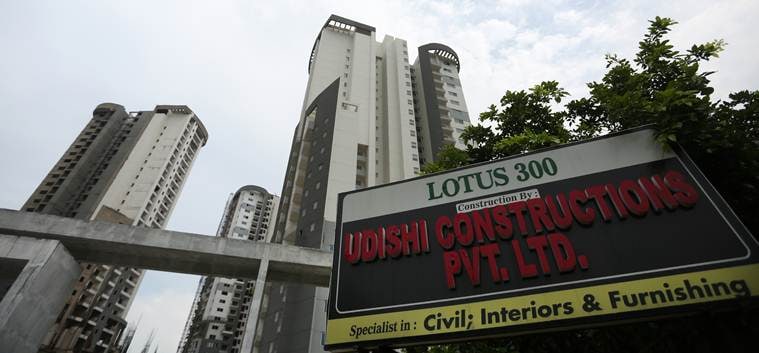
What next
With the judiciary taking the lead, various other agencies such as NCLAT, NCLT and RERA have also initiated action against builders. An FIR was filed against the Omaxe director and officials in March after they failed to deliver a flat in time. In December 2018, 3C directors Nirmal Singh, Surpreet Singh and Vidur Bharadwaj were arrested by the Delhi Police’s Economic Offences Wing. Logix Group had to give up 4,000 of its flats to another construction company, ATS, so they could be finished in time.
The UP RERA has emerged as another avenue where consumers can lodge cases since the authority also has judicial powers. But its hands are full. Currently, Supertech has 324 cases pending in UP RERA while Jaypee has 200 and Supertech Township has 75. Almost 25 cases of Omaxe group were resolved and 18 are pending. 3C group has 25 cases remaining.
“At present, 1,340 projects are registered with RERA, and our effort is to ensure all consumers get flats. Powers that RERA has include Section 7 under which we can deregister a builder group if it has not performed to the expectations of the homebuyers and is a defaulter. We also have a conciliatory court where amicable solutions are reached,” said Rajive Kumar, Chairman RERA.
According to RERA officials, an integrated website for online solutions and real-time updates on redressal mechanisms are also being planned.
The GNIDA is also attempting course correction. Its CEO said: “We are issuing recovery certificates to builders and are also cancelling projects as deterrence. Several builders have come up with solutions and proposals to finish delayed projects. We will sit them down and analyse the feasibility.”
Ritu Maheshwari, the Noida Authority CEO, said: “Amrapali and Unitech alone have dues worth Rs 8,000 crore. But every case is different and we will see each on its own merit… We might cancel projects which have not taken off.”
[“source=indianexpress”]












